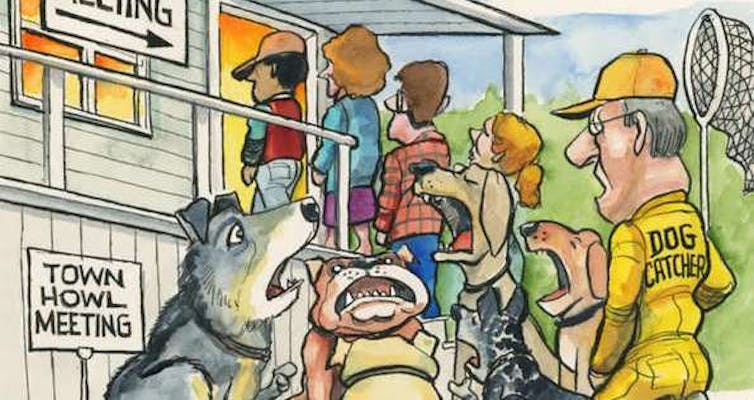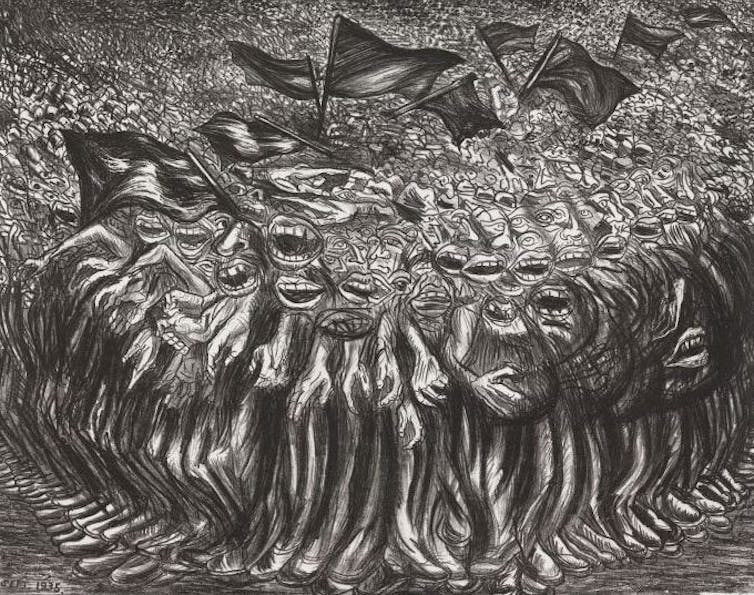
The widespread belief that religion is plainly bad for democracy is misleading, or so the following dialogue on religion tries to illustrate, with reasons and examples. Conducted in Melbourne by the distinguished young Indian anthropologist Irfan Ahmad, the conversation covers a wide range of issues to do with democracy and religion. Published in three parts, it sheds light on the fascinating but complex relationship between democracy and the deities since the age of the ancient Greek democracies. It reveals that democracies have rarely been irreligious. The conversation dwells on such matters as the invention of the word religion, power and courage and the ethics of pluralism. Other themes include Christianity and representative democracy, the French Revolution, Indian secularism, religious bigotry and the unfinished revolutions in the Arab world.
In this third and final part, the conversation turns to the strange ways in which the early modern European doctrine of popular sovereignty proved in practice to be a sublimated form of Christian monarchic thinking. We consider contemporary populists, India’s Narendra Modi among them, who speak of democracy and a mythical ‘people’ in opposition to immigrants, Muslims and others who supposedly don’t belong to the existing polity. The conversation touches on such subjects as the fascist defence of The People by Martin Heidegger during the 1930s, the pro-democratic contributions of Mohsen Kadivar, Abdolkarim Soroush and other contemporary Muslim thinkers, the problem of anthropocentrism and (yes) the thoughts of Pope Francis on the subject of dogs and democracy.
IA: By attempting to replace God and make people sovereign, is there evidence that the demos (the people themselves) were at any point turned into some kind of earthly God in need of a secular Pope?
JK: The history of modern representative democracy has witnessed more than a few moments when people championed the Sovereign People principle, as if the People were God on Earth, as if they could do no wrong. More than a few populist democrats still like to think of themselves as instruments of The People, as champions of the shortest of short textbook definitions of democracy, as self-government of the people, by the people, for the people.

This view of democracy has Christian theological and monarchic origins. Think of the ways in which hard-core monarchies symbolically represented their power over their subjects. The physical body of kings was conceived both in the figure of God the Father and Christ the Son. The body was divine and therefore immortal and unbreakable. It could not be admitted that kings died. Their bodies symbolised perfection. Like God and his Son, kings could do no wrong, which is why attempted violations of their bodies, through un-Godly acts ranging from unsolicited touching by their subjects through to attempted regicide, were harshly punishable. The body of kings also symbolised the unbreakable quality of the ‘body politic’ over which they ruled. Like God, kings were omnipresent and their bodies coterminous with the polity itself. Monarchs were God-given givers of laws. But as the German-American historian Ernst Kantorowicz reminded us, they also resembled God the Son: sent by God to redeem humankind, kings had a ‘body natural’ – the sign of God in the world – as well as a body politic. Just like the persons of the Trinity, the two bodies plus the authority they radiated were one, inseparable and indivisible.
We know, thanks to the research of Carl Schmitt and Edmund Morgan and others, the body politics of monarchy had an unexpected offspring. The modern doctrine of popular sovereignty was an inverted form of monarchic thinking; according to the early champions of popular sovereignty, some of whom were prepared publicly to commit the most radical of acts by seizing the body and chopping off the heads of kings, monarchy rested upon the fiction of the sovereignty of a God-like body. That was said to be a falsehood. It was rather the God-like body of ‘the people’ that was the source of all sovereign power and authority. Vox populi, vox Dei.
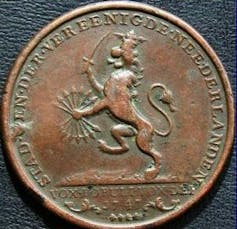
All subsequent populist versions of democratic politics were indebted to this semantic shift. Its direct effects even worked their way into the thoughts and actions of avowedly anti-democratic movements, parties and governments of the past century. Twentieth-century totalitarianism absorbed originally monarchic fictions of the (potentially) integrated body politic grounded in ‘the people’. You can see this dynamic at work in the writings of Martin Heidegger, who saw the state as the highest political form whose leaders are the articulations of the people. This was fascist thinking, with democratic qualities.
IA: These writings by Heidegger are from the early 1930s. Can we say that in contemporary times, in many places, the term people itself can be used or it has become something like a metaphysical entity?
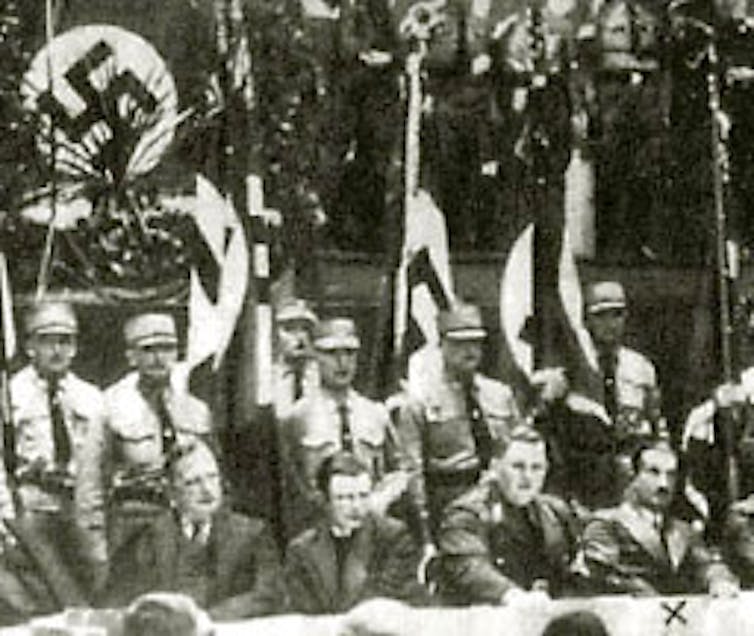
JK: Yes, the whole idea of the coming-to-be of the Sovereign People is defended by Martin Heidegger in his Freiburg lectures of 1933/1934. This was his reasoning: modernity has experienced the disintegration of ‘dogmatic-ecclesiastical faith’ and its replacement by reason, the disembodied mathematical ratio, which becomes the dominant power in the world, and speeds up the disintegration of community. The individual becomes the ‘final court of appeal’ in all matters. The concept of sovereignty develops in this context. The State gives all Being new meaning. The highest actualisation of Being, says Heidegger, happens in the state. The Führer state is the culmination of the whole process of the actualisation of the people in the Leader. Little wonder that during the 1940s, in my reading of the history of democracy, the spirit and language and institutions of democracy began to be reinterpreted in a radically new way. Monitory democracy was born – in opposition to totalitarian power.
Democracy came to mean much more than the practice of free and fair elections. It signified something more expansive: the effort to resist and publicly restrain arbitrary power, wherever it is exercised. Monitory democracy nowadays means the public accountability of power, political humility, respect for diversity and complexity, and the refusal of all forms of bossing, bullying and violence against flesh and blood people, wherever they live. Today’s populists turn their backs on this trend. They are recidivists. They want to wind back the clock, to move forward by stepping back in time, into a world where the People supposedly once ruled, and should once again rule. When these populists speak of democracy and the people, in opposition to immigrants, Muslims and others, this is what they really mean: ‘you don’t belong here because you are not one of us’. Their aesthetic sounds thoroughly democratic. It is in fact a new form of demagogy – the refusal of monitory democracy and its resistance to arbitrary power.
IA: In the course of election campaigning as the Prime Ministerial candidate, Narendra Modi in India said: ‘In democracy, people are like God. I am proud to…seek their votes’. After the suppression of the LTTE, Sri Lanka’s Mahinda Rajapaksa said: ‘There are only two peoples in this country. One is the people who love this country. The other comprises the small groups that have no love for the land of their birth’. And you can see similar sentiments in Nicolas Sarkozy. ‘If foreigners want to remain in France’, Sarkozy asserted, ‘they have to love France; otherwise, they should leave’. What we see in all these cases is the divinisation of people/territoriality and the nation and the simultaneous creation of the other, an inimical other. I wonder if you can say something about that?
JK: We should remember that in these early years of the twenty-first century practically every political system on the face of the earth, and all those who govern through these polities, claim to be representative of the people, who are said to be sovereign. This is true for all the new despotisms of the twenty-first century: Russia, China, the Gulf states, Turkey and Iran and the Central Asia republics. Nobody today dares to be against the people. At one glance, this is a great victory for the spirit and the language and the institutional dynamics of democracy. All who govern seem to do so according to the principle that their power comes only from the people. But what’s striking about this trend is that ‘the people’ are ubiquitous and absent. They are everywhere and nowhere, constantly referred to but invisible and unlocatable, as Pierre Rosanvallon says. In the name of the supposedly sovereign People, hypocrisy flourishes. It’s in this respect that religious believers, with their sensual belief in the more, their feeling of awe in the presence of a trans-mundane world, can serve as demystifiers of the political fetish and idolatry of the so-called sovereign people. The historical dialectics here are paradoxical: the earthly abuse by populists of the originally God-given principle of the Sovereign People is resisted by believers in God for whom no earthly ruler is entitled to play God on Earth. Important examples of this democratic line of argument can be found in the works of Mohsen Kadivar and Abdolkarim Soroush, who are among Iran’s most prominent scholars and respected religious critics of the predatory populism lurking in the official state doctrine of Velayat e Faqih.
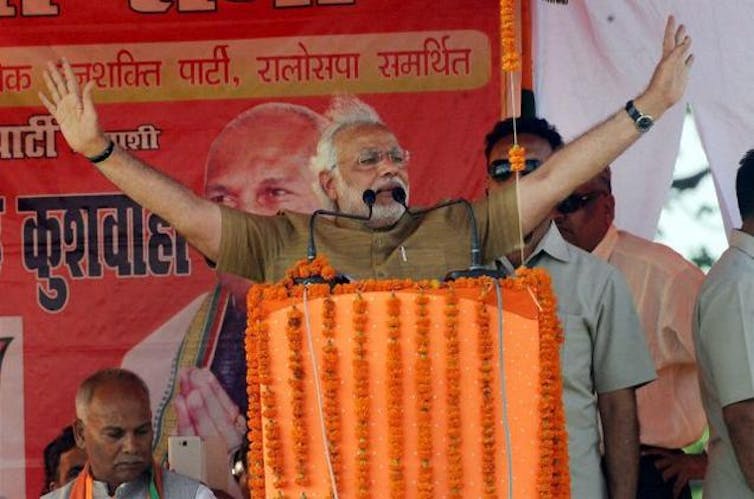
IA: I want to ask a different, though related, question. As a scholar of democracy who has written a wonderful book about its history, and has done comparative studies of Central-Eastern Europe, Western Europe, the USA and so on, not to mention notable volumes on Thomas Paine (1995) and Václav Havel, how do you read the ‘Arab Spring’ and what happened afterwards?
JK: I don’t like or use the term. Not only is it a Western cliché, but things on the ground are far messier than any seasonal simile can plausibly convey. The upheavals that began in 2011, symbolised by the extraordinary toppling of the Mubarak regime, are turn- ing out to be a highly complex revolutionary dynamic. Their breathtaking democratic potential comes mixed with the most heinous crimes. The uprisings have unleashed great destructiveness and war: uncivil strife among Muslims, a definite breakdown of the old post-colonial structures, and the dirty involvement of the United States and its allies in trying to plug the power vacuums and cope with the rebirth of religious sentiment, and religious hatreds, in armed form.
Just as Alexis de Tocqueville and others noted when analysing the French events of 1789, these revolutions will take decades to unfold. The whole regional dynamic currently seems crazed and unpredictable. The uprisings have led to the contested return of the old guard in Tunisia, a vicious despotism in Egypt, a Saudi-backed crackdown in Bahrain, the destruction of the Syrian and Yemen states, the emergence of a potent ISIS caliphate under al-Baghdadi, the rise of Turkey as a powerful regional force and the newfound friendship of the Shia republic of Iran with the United States. One has to smile, and simultaneously to weep, and to harbour bemusement and hold one’s breath when confronted by these contradictory processes. For me, only one conclusion is safe: this unfinished revolutionary dynamic is not leading to a new phase of secularisation of the world, in the sense of Max Weber. Things are actually heading in the opposite direction. This raises questions about how power shall in future be distributed in the region. Will decisions be publicly shared and their effects controlled and, if so, through which institutions? What will be the relationship between politics and the experience of the transmundane, the experience of ‘the more’, the experience of divinity among many millions of people? And how shall people of faith live side by side with people for whom there is a deep suspicion of organised divinity? These questions are among the Greek gifts of these remarkable Arab uprisings: these thoroughly modern, spectacularly multi-mediated networked resistances to arbitrary power have announced to the whole world that local disaffection with the status quo demands a new regional political settlement in which religious faith will not wither away. As you can see in the Palestinian resistance to Israeli domination, of central importance are questions about the compatibility between Islam and democracy, what that might mean in practice, and whether new democratic forms of ‘religious secularity’ (the phrase of one of my former PhD students Naser Ghobadzadeh) can flourish among Muslims.
IA: Are there historical precedents for the compatibility of Islam and democracy? Did the early Muslim world even pay attention to democracy?
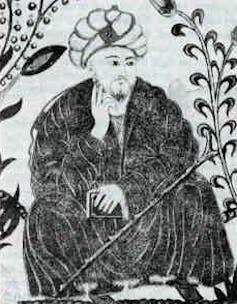
JK: It did. From the seventh century onwards, there were forthright calls among Muslims for the open election of rulers. Loud trumpet blasts were plentiful, but easily the most sonorous was produced by the first Muslim to speak of democracy, Abu Nasr al-Farabi (c. 870–950). Al-Farabi was a great champion of a new form of government that secured people’s freedom and happiness (sa’ada). He was thoroughly familiar with the Greek experiment with dēmokratia, although in some parts of his work he regarded the ideal with ambivalence. Al-Farabi worried, as Plato’s Republic before him had done, that democracy (he used the words al-madina al-jamaiyya) rather overstated the virtue of what he called ‘absolute freedom’. Democracy for that reason might degenerate into a free for all because the people would devote themselves to self-interested pleasure seeking.
IA: Did Al-Farabi imagine there were better alternatives?
JK: Interestingly, Al-Farabi was even less impressed by all other forms of earthly government. With the cruel caliphate of the Abbasids in mind, he expressed dislike of polities that catered merely to men’s animal needs; cities based on meanness, the belief that property, wealth and money making are the only things that count in life; and cities driven by the pursuit of recognition, honour and power, based on the right of the stronger. He called these degenerate polities ‘ignorant cities’. Democracy, he thought, was the least ignorant of all polities. Al-Farabi knew it could never produce paradise on Earth, but it did nurture a form of public self-awareness that sprang from democracy’s unique stress on frank speech and self-government through open public assembly. Al-Farabi liked these qualities. They danced to the tune of his conviction that since humans are equipped with the divinely given capacity for free deliberation, they can contribute substantially to their own perfection, understood as the desire to cooperate for the sake of happiness. Democracy unleashes this human capacity. It ensures that ‘democratic people have many aims’.
IA: To Al-Farabi, were there downsides to popular government?
JK: There were times, al-Farabi admitted, when democracies led to excessive polarisation among differing aims and conflicting opinions. And democracies were especially vulnerable to war, the threat or possibility of which tends to sub-divide the people into two hostile groups: those in favour of peace and those who ‘maintain that the good consists in ruling by force’. Democratic freedom for Al-Farabi was a double-edged dagger. It could bring out the worst in people. But it could also produce virtuous citizens, wise men, fine orators and poets. Al-Farabi favoured freedom and happiness of all God’s creatures on earth and he thought that it required political leadership by good men of active intellect, good judgment and strong physique: leaders who were good orators, lovers of learning and truth and who stood above the materialism of this world. This was the singular advantage of democracy, he said. It enabled the cream of good leadership freely to rise to the surface of public life.
IA: Final, short question! You spoke a lot about gods and democracy. I was just wondering what the relationship between dogs and democracy is.
JK: Dogs?
IA: Yes. In Holland, America or Australia one rarely sees any free dogs, though human beings are allegedly free in these Western democracies. But if you go to a place like Egypt or Senegal or India you always see free dogs. In the West there are no unleashed dogs. Every dog seems to have a master. In India, Senegal, Egypt and many other African countries most dogs are without a leash. They’re free. They have freedom of movement, and the freedom to bark. This suggests there is some kind of relationship between political forms, human beings and animals, and even multi-lingualism. Dogs in India have at least two languages: one to speak with humans and another to communicate with fellow dogs. In Melbourne or New York perhaps the only place where one dog can meet another dog is in a park. Even there the master pulls the leash, or growls, refusing his or her dog permission to interact with another dog. Have scholars looked at this relationship of democracy, dogs and freedom?
JK: I wasn’t expecting a wonderful witticism, a reverse palindrome, what’s playfully called a semordnilap, a word in the English lexicon that when spelled backward forms an entirely different word: like stressed and desserts, dog and god.
When I think about it, what springs to mind is Hannah Arendt’s remark that a dog with a name has a much higher chance of survival in this world than a stray dog with no name. With the fate of refugees in mind, she meant that in the human sciences, as in public life, the process of giving things of this world a name is always contestable, misleading and potentially dangerous, but it is unavoidable and (think of words like freedom and democracy) politically fruitful. Naming the world enables recognition. It helps us to think. It provides signposts for how we should act and which means we should use.
Arendt’s comment could be given a bio-political twist, to highlight a more profound, more perplexing sense of the political importance of dogs to democracy. In many actually existing democracies, democrats express growing concern about the relationship between humans and non-humans. They worry that the democratic principle that the sovereign people through their representatives should govern themselves in time-space contexts is in fact a carrier of homocentrism. Rightly so, for until the coming of the age of monitory democracy during the 1940s, democracy indulged a thoroughly anthropocentric understanding of the world. Hence the question: Is it possible to re-conceptualise democracy, to humble it, to bring it back to Earth, to democratise democracy by understanding it as a political form, a way of life, a language, a set of institutional dynamics that requires humans to humble themselves in relation to the biomes in which they dwell? As Edward McCord, Elizabeth Colbert and others have recently pointed out, this need for humans to think in more humble ways about our inter-dependence with animals and other living and non-living species is driven by the industrial-scale destruction of our biosphere at an alarming rate.
IA: What can democrats do in the face of this trend?
JK: I’m struck by the slow-motion greening of democracy that is now under way. Votes are being extended to a whole new constituency – our biosphere – that never before enjoyed the franchise. Efforts to ensure its political representation include more than talk of animal rights, simian sovereignty and respect for sentient creatures. The greening trend runs much deeper. It includes such innovations as bio-regional assemblies, constitutional protection of the biosphere, green parties and citizen science. The whole trend prompts fundamental questions about the meaning of democracy, and whether it has a future. It forces us to think about how we think about democracy. What I have in mind is whether the greening of democracy, let’s call it, goes beyond the familiar arguments about whether open democratic societies are capable of cultivating public awareness of future generations (they can) or whether democracies can act quickly enough to handle the coming mega-disasters (they can). The trend forces us to answer the most basic question: are we human beings capable of democratising ourselves?
IA: Do you mean by democratisation of democracy the effort to make non-human entities – in fact, the whole planet Earth – central to the future of democracy?
JK: Your question has at least three pointed parts. Can we human beings humble ourselves by collectively recognising our ineluctably deep dependence upon the ecosystems in which we dwell? Can we simultaneously find new ways of practically extending voices and votes in human affairs to our ecosystems? Thirdly, and consequently, is it possible in theory and practice to rid the whole idea of democracy of its anthropocentrism? Can it come to mean, descriptively speaking, a form of life and a way of rendering power publicly accountable by means of institutions in which humans and their biosphere are treated symmetrically, as interdependent equals, in opposition to the reigning view that humans are the pinnacle of creation, lords and ladies of the universe, ‘the people’ who are the ultimate source of sovereign power and authority on Earth?
IA: Shouldn’t this democratisation also include languages, many of which are disappearing?
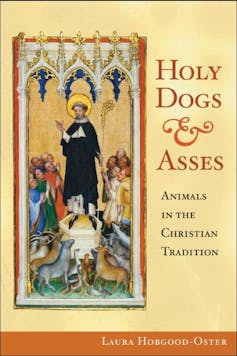
JK: I’m not equipped to talk about the global disappearance of languages and dialects. But I do agree that the key point, that human and non-human nature form part of a common but fragile dynamic, needs to be registered in the very language of democracy. Language shapes who we are. It speaks us and that’s why, in matters of democracy, thinking hard and deeply about language is necessary therapy. There have been many past moments when the key terms of democracy were turned upside down, or inside out. The history of democracy is full of phrase struggles. Think of the still-unfinished job of subverting sexist or homophobic language; or the invention and popularisation of terms such as social democracy, liberal democracy and Christian democracy; or the (hardly remembered) contribution by democrats of words like ‘ok’ to the English language. Now think of the way the language of democratic politics is a carrier of unwarranted insults and blind indignities thrust at our biosphere. Dogs have suffered their fair share of abuse, as you say. In many cultures, calling a human a dog is among the greatest insults – despite the historical fact, well documented by Laura Hobgood-Oster, that we humans would never have flourished without the support of canines.
IA: So you’re saying democracy is deeply implicated in the verbal denigration of dogs – their human stereotyping as wild creatures in need of stern words and the occasional kick?
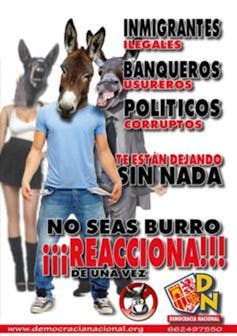
JK: Yes, though there seems to be hardly any research on this. Let’s take a more familiar example, the case of donkey voting and the denigration of donkeys. Donkey voting is a familiar phrase, dating from the early 1960s. It refers, especially in compulsory parliamentary elections using preferential voting systems, to citizens who thoughtlessly rank each candidate in the order they are listed on the ballot paper. The donkey voter is a stupid voter, an idiot who pays no attention to the merits of the candidates. The presumption buried deep within the phrase is that donkeys are foolish, gloomy and (as in an old icon still used by supporters of the Democratic Party in the United States) mulishly stubborn.
The main trouble with the phrase is its ignorance of donkeys. Humans are often enough stubborn, gloomy and foolish. Donkeys aren’t. They’re patient, gentle and as loyal as Eeyore, or Sancho Panza’s Platero and Dapple. Their learning capacity is higher than horses. Donkeys require little feeding, and can easily survive the harshest conditions. They ferried wounded soldiers out of the hellish trenches of the Somme; transported Napoleon across the Alps; delivered Jesus to Jerusalem. Even today, in India and many other places, they carry much-needed clean water to households without running water. They’re surefooted and brave: they’ve been known to survive 50-metre cliff falls, and jennies will walk through raging fires to save their young. Laboratory tests show that compared with all other mammals donkey milk is closest to human milk. That’s reason enough to stop insulting the donkey, to remember that the future of humanity is bound up not just with dogs and donkeys, but with all living species, and to see that the future of democracy thus depends on greening its own language.
IA: Experientially, I have been concerned more with dogs (free ones) than donkeys. Anyway, how do you see democracy can reconfigure itself in future to ensure dignity and freedom to dogs, donkeys and other non-humans as well?
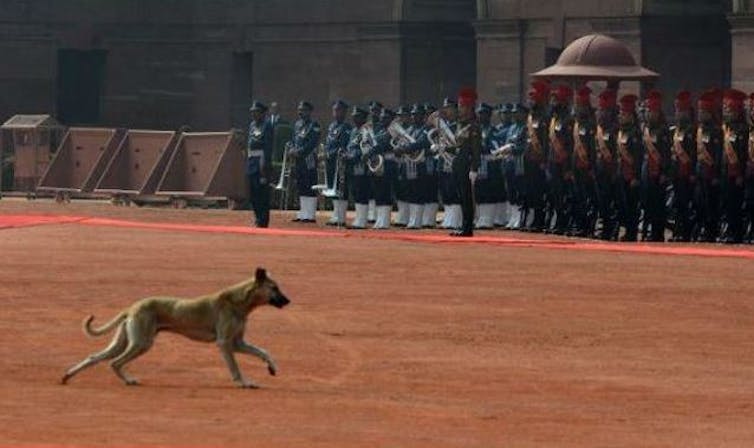
JK: I don’t know that we can know this yet. Yet ridding the language of democracy of human hubris would be a good beginning. How should we go about this? Searching through the world’s religions and indigenous spiritual codes for tips and clues would be a good start. Consider for instance the much-loved fable called The Animals’ Lawsuit Against Humanity. Written by a group of tenth-century Sufi Muslims from near Basra, it features an assembly attended by bees, horses and all representatives of the animal kingdom. In the presence of the Spirit King, they complain bitterly of their dreadful suffering at the hands of humans. Much can be learned from such texts. We can learn much, too, by familiarising ourselves with alternative ways of granting dogs the entitlement to explore public spaces, to be fed, stroked and loved, to speak in their languages, and to be respected, not as an object and ornament of human narcissism. Think of the media and security mayhem unleashed when a fine free-range dog came to check out President Barack Obama as he was being officially welcomed in Delhi in early 2015. Why the mayhem? Then consider Pope Francis, who tried recently to console a young boy whose dog had died. ‘One day,’ he said, ‘we will see our animals again in the eternity of Christ. Paradise is open to all of God’s creatures’. With these few words, Pope Francis caused a storm, whipping up such questions as whether animals have souls, and what is meant by the famous passage in Genesis about Man being given ‘dominion’ over every living thing that moves on the Earth, and whether ‘dominion’ implies the obligation of stewardship. With that controversy and Pope Francis in mind, tongue half in cheek, perhaps it’s no exaggeration to conclude that recognition and respect for dogs is among the unintended, positive effects on democracy of the belief in God and the gods.
The text of this interview is reproduced with the kind permission of the Journal of Religious and Political Practice, volume 1, number 1 (2015), pp. 73–91.
